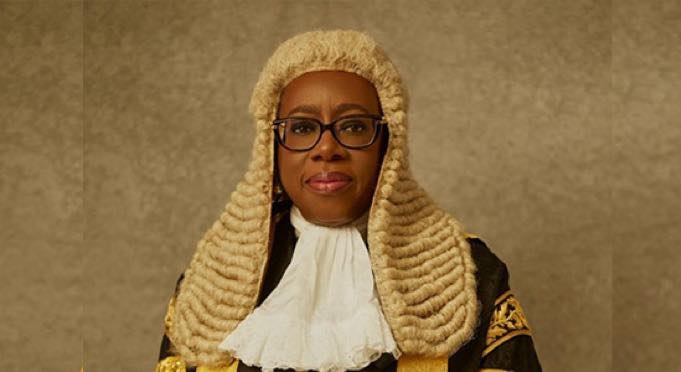
The recent directive from Chief Justice of Nigeria (CJN), Justice Kudirat Kekere-Ekun, warning newly appointed magistrates and judges against corruption and urging them to uphold integrity, has sparked mixed reactions among Nigerians. While on the surface, such admonitions sound necessary and welcome, a closer look reveals a frustrating pattern: these warnings are nothing new.
For decades, successive CJNs have made similar statements. Justice Walter Onnoghen, Justice Mahmud Mohammed, Justice Aloma Mariam Mukhtar, and Justice Dahiru Musdapher — among others — have all issued strong messages calling for judicial integrity and zero tolerance for corruption. Yet, despite these recurring calls, corruption remains deeply entrenched in many corners of Nigeria’s judiciary.
The Perceived Pattern of Repetition Without Action
The problem is not the words themselves but the persistent gap between rhetoric and reality. Nigerians have grown weary of hearing the same promises from judicial leaders without tangible reforms or improvements. This repetition risks rendering such speeches perfunctory, a ritualistic performance rather than a genuine call for change.
Many citizens wonder: if previous CJNs could not stem corruption in the courts, why would this time be any different? This skepticism is rooted in years of observing high-profile corruption cases that linger unresolved, the slow pace of disciplinary actions, and the perceived immunity enjoyed by influential judicial figures.
Why Nigerians Might Not Take the Current CJN’s Words Seriously
History of Ineffectiveness:
Past warnings have often failed to translate into lasting reform. The judiciary remains one of the most criticized arms of government for corruption and inefficiency. This history breeds cynicism among the public.
Lack of Visible Enforcement:
While CJNs talk about zero tolerance, many Nigerians have yet to see consistent enforcement of disciplinary measures against corrupt judges or magistrates. This creates a perception that the judiciary protects its own.
Political Interference:
Allegations of political influence in judicial appointments and decisions further erode confidence in the system’s independence and fairness, making anti-corruption declarations seem hollow.
Structural Challenges:
Without systemic reforms—such as better judicial training, increased transparency, and stronger accountability mechanisms—words alone cannot fix deeply rooted problems.
What Needs to Change
For Justice Kekere-Ekun’s words to carry weight, Nigerians want to see concrete actions. This includes:
Swift and transparent investigations into corruption allegations within the judiciary.
Clear and consistent disciplinary measures against erring judicial officers.
Greater openness in judicial appointments to reduce nepotism and favoritism.
Engagement with civil society and media to promote accountability.
Judicial reforms that streamline case management and reduce delays, which often breed corruption.
Beyond Words, Nigerians Demand Results
Justice Kudirat Kekere-Ekun’s warning to new magistrates reflects an ongoing, important conversation about corruption in Nigeria’s judiciary. However, for many Nigerians, such admonitions have become background noise in the absence of real change. The public’s trust will only be restored when these words are matched with decisive, transparent actions.
Until then, the CJN’s message, no matter how well-intentioned, risks being dismissed as just another statement in a long line of speeches that fail to move the needle on judicial integrity.




